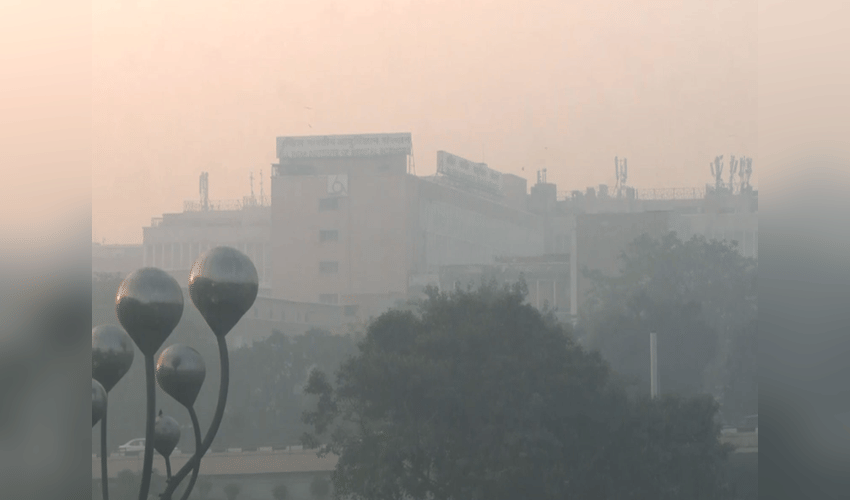News
Delhi doctors warn of surge in pollution-related illnesses as OPDs overflow with patients

Doctors in Delhi have issued a warning about the growing number of illnesses linked to worsening air pollution in the capital. On Thursday, several medical professionals reported a sharp rise in respiratory and pollution-related ailments. Many patients are suffering from throat irritation, rhinitis, runny noses, itchy eyes, and severe chest congestion, while others are experiencing aggravated symptoms of asthma, chronic obstructive pulmonary disease (COPD), interstitial lung disease (ILD), and other chronic heart and lung conditions.
Dr. Pulin Gupta, a professor at PGIMER, stated that outpatient departments (OPDs) are overflowing with pollution-related cases, noting a 22–25% increase in respiratory illnesses. “We’re seeing a surge in patients with bronchitis and asthma attacks. ENT departments are crowded with cases of sinusitis, nasal bleeding, and dryness of the eyes. Elderly people, smokers, and those with pre-existing lung diseases are particularly at risk of severe complications,” Dr. Gupta told ANI.
Dr. Bobby Bhalotra, Senior Consultant and Vice Chairman of the Department of Chest Medicine at Sir Ganga Ram Hospital, described Delhi’s air quality as “the most hazardous this year.” He emphasized that children, the elderly, and patients with chronic ailments are the most vulnerable. “With the sudden onset of winter, we’re witnessing a spike in cases of throat irritation, nasal congestion, itchy eyes, and chest discomfort. Pollution is affecting everyone, but those with asthma, COPD, ILD, or heart conditions are especially impacted,” Dr. Bhalotra said.
Meanwhile, Delhi’s air quality worsened on Thursday morning, with the Central Pollution Control Board (CPCB) recording an overall Air Quality Index (AQI) of 271 at 8 a.m.—up from 202 at 4 p.m. on November 5. Despite this rise, the city’s AQI remained in the “poor” category. Specific areas reported higher levels: Burari Crossing (280), Dwarka Sector 8 (296), and ITO (295). Some regions, like Narela (302) and Bawana (337), entered the “very poor” category, while Dilshad Garden recorded a “moderate” AQI of 183.
As pollution levels continue to climb, Dr. Bhalotra advised residents to limit outdoor activities. He urged people to avoid sports and strenuous exercise outdoors, particularly in the mornings. “Elderly individuals should stay indoors during early hours and step out only after sunrise, wearing masks. The government should also consider hybrid work arrangements to reduce vehicular emissions,” he added.



